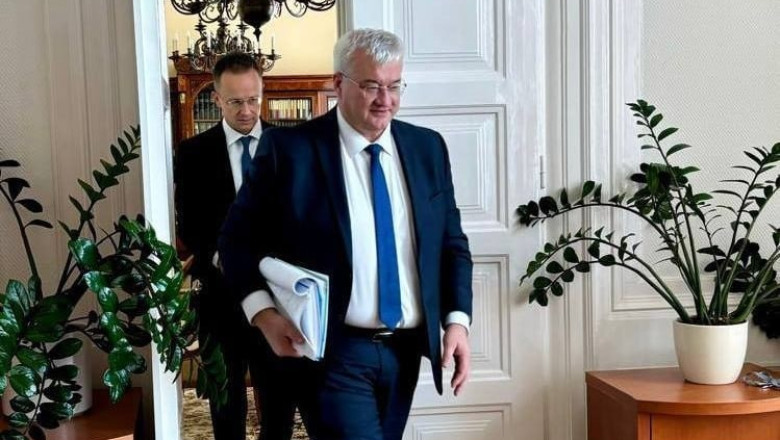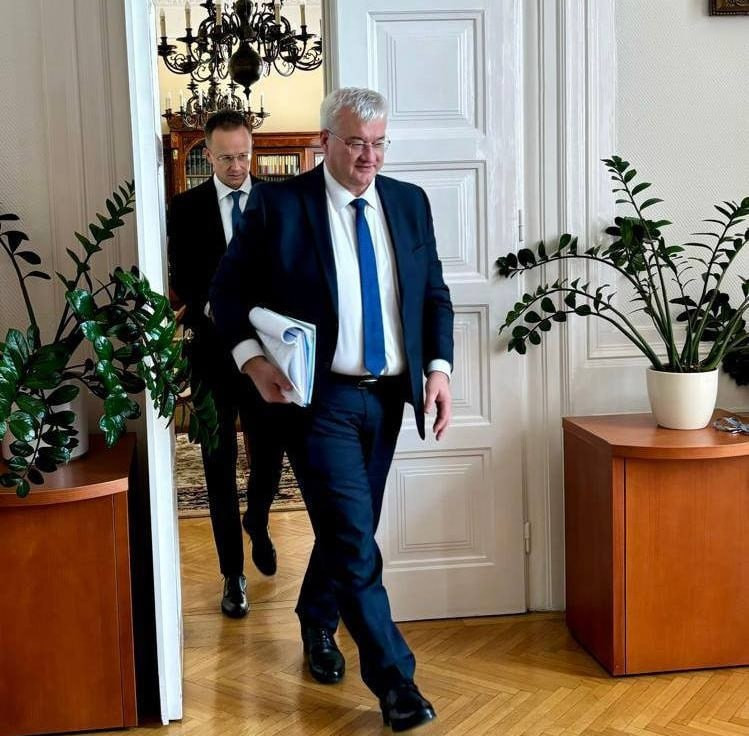
views
Ukrainian Foreign Minister Sybiga Meets Hungarian Counterpart Szijjártó in Diplomatic Talks on September 30, 2024
In a crucial diplomatic meeting held on Monday, September 30, 2024, Ukrainian Foreign Minister Andriy Sybiga engaged in discussions with Hungarian Foreign Minister Péter Szijjártó. The talks, seen as a significant move toward addressing longstanding issues between the two neighboring nations, centered on political, economic, and security concerns, particularly in the context of ongoing geopolitical tensions in the region.
Key Issues on the Agenda
The meeting took place against the backdrop of the ongoing conflict between Ukraine and Russia, which has had wide-reaching impacts on the security and stability of Eastern Europe. Hungary, being a NATO member, has a vested interest in the security dynamics of the region, particularly concerning Ukraine’s sovereignty and territorial integrity. As a direct neighbor, Hungary has faced the challenges of managing refugee flows, border security, and economic repercussions stemming from the conflict.

The two foreign ministers addressed a variety of critical topics, with a particular focus on the humanitarian and economic impacts of the war. Hungary has been involved in providing humanitarian aid to Ukraine, and the discussions included future cooperation in these areas. Additionally, the ministers likely addressed issues of energy security, a critical concern for both nations, particularly as the war in Ukraine has disrupted traditional energy supply routes across Europe.
Historical Tensions Between Ukraine and Hungary
While both nations share common interests in maintaining regional security, Ukraine and Hungary have had strained relations in recent years. A key point of contention has been Hungary’s concern over the treatment of the Hungarian minority in Ukraine, particularly in the Transcarpathian region, which borders Hungary. The minority issue has been a sensitive topic in bilateral relations, with Budapest expressing concerns over Ukrainian language laws and the perceived erosion of minority rights.
Szijjártó has been vocal in criticizing Ukraine’s language policies, which he argues discriminate against ethnic Hungarians living in Ukraine. This tension has sometimes resulted in Hungary blocking Ukraine’s efforts to engage more deeply with NATO. Nevertheless, Monday’s meeting between the two ministers indicated a willingness on both sides to continue diplomatic dialogue and find common ground.
European and NATO Context
The diplomatic engagement between Ukraine and Hungary is also significant in the broader European and NATO context. Hungary’s relationship with Russia has at times diverged from the European Union’s unified stance on sanctions and criticism of Moscow’s actions in Ukraine. Szijjártó has maintained communication with Russian officials, emphasizing Hungary’s need for Russian energy imports. This stance has created friction within the EU, where a majority of member states have taken a more hardline approach toward Russia.
Despite these complexities, Hungary continues to support Ukraine’s territorial integrity and has repeatedly emphasized the need for a peaceful resolution to the conflict. As a NATO member, Hungary remains committed to the alliance’s collective defense principles, even as it balances its unique relationship with Russia.
Strengthening Bilateral Ties
Sybiga and Szijjártó’s meeting also provided an opportunity to discuss ways to strengthen bilateral economic ties, particularly in the areas of trade and investment. Prior to the conflict, Hungary had been one of Ukraine’s key trading partners in Central Europe, and both sides expressed an interest in restoring and enhancing these economic links once stability is restored in the region. The meeting included discussions on infrastructure projects, cross-border cooperation, and energy transit agreements.
Additionally, Hungary has been a key transit country for Ukrainian grain exports, which have faced severe disruptions due to the war. Discussions likely included how to streamline and expand the movement of goods between the two countries to help alleviate some of the economic pressures Ukraine is facing due to the conflict.
Future Prospects
While it remains to be seen how much progress will be made in resolving the deeper issues in the Ukraine-Hungary relationship, the meeting between Sybiga and Szijjártó is a positive sign of continued dialogue and cooperation. Both nations have a shared interest in regional stability, and despite their differences, ongoing communication at the diplomatic level is essential for maintaining peace and security in Eastern Europe.
The Ukrainian foreign minister’s visit to Hungary signals a recognition of the need to work with all of its neighbors, not just in the context of the war, but also in addressing long-term economic, social, and security challenges. For Hungary, maintaining good relations with Ukraine is equally important, not only for its security but also for its broader role within the EU and NATO.
As both ministers concluded their talks, the international community closely watches to see how these discussions might contribute to easing tensions and fostering stronger bilateral cooperation in the future.












Comments
0 comment